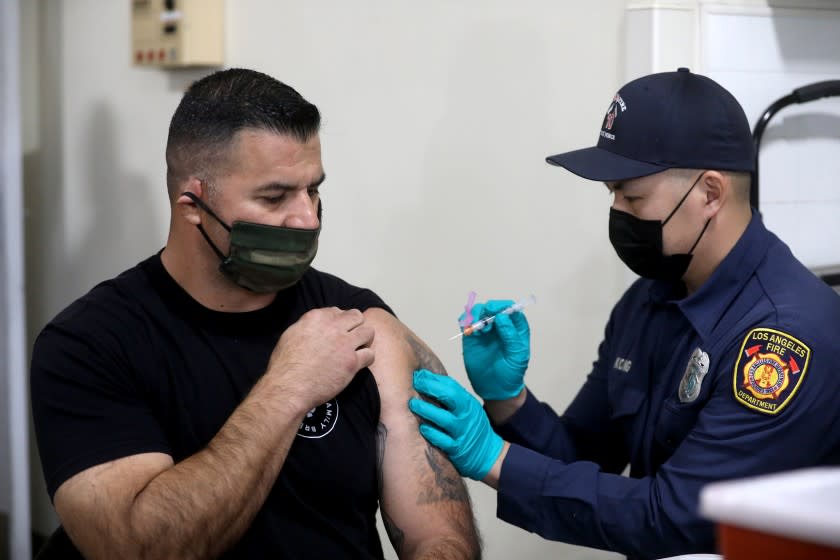Editorial: Punish those who jump the COVID vaccine line

Gov. Gavin Newsom says he is serious about cracking down on medical providers who divert COVID-19 vaccines to nonpriority patients or sell them on the black market. “If you skip the line or you intend to skip the line, you will be sanctioned, you will lose your license,” Newsom said Monday, adding that his office was working on details of an enforcement package.
Good. Lives are at stake, and anyone who cuts in front of a healthcare worker or someone at high risk of dying — or allows it to happen — should be called out and punished in a meaningful way. That hasn't been the case for pandemic restrictions, and the result has been open defiance of safer-at-home orders and a surge in infections and deaths.
Vaccine line-jumping doesn't yet seem widespread. There have been scattered tales of line-jumping and the Facebook revelation of a 33-year-old Disney employee who said she received a shot thanks to a family member who is a "big deal" at Redlands Community Hospital.
But at this point there are not many doses available as the rollout of the first wave of the vaccine has been far slower than expected. Initially, federal officials estimated there would be 40 million doses shipped by year's end. But with hours left until 2021, only about 11.5 million doses had shipped and 2.1 million first shots administered nationwide. California expects it will have received a total of 1.8 million by week's end, with clear guidance on who gets them: front-line healthcare workers and residents of long-term care facilities.
Complicating the matter is the fact that the two vaccines now available are packaged in vials that contain multiple doses with a six-hour shelf life. If there is a surplus after immunizing staff, it's reasonable for medical facilities to offer it to anyone who wants a shot rather than waste even a drop of this precious substance. (Still, it seems there could be better methods of distributing excess vaccine than tapping the friends and family network of healthcare VIPs.)
But vaccine misuse surely could become an issue as more doses become available in coming months and access is opened to broad groups of people such as food and agricultural workers. And it's wise for state officials to plan now for how they might deal with violations of distribution rules. As the Los Angeles Times has reported, doctors are already feeling pressure from their wealthy patients to get them ahead of the line.
Generally speaking, having a strong demand for COVID-19 vaccines is a good problem. Polls have indicated a deep well of mistrust in the U.S. for the COVID-19 vaccine, even among healthcare workers. But until we reach a point where there is more supply than demand, the scarce doses must go only to those who need the protection the most, not the highest bidder.
This story originally appeared in Los Angeles Times.
